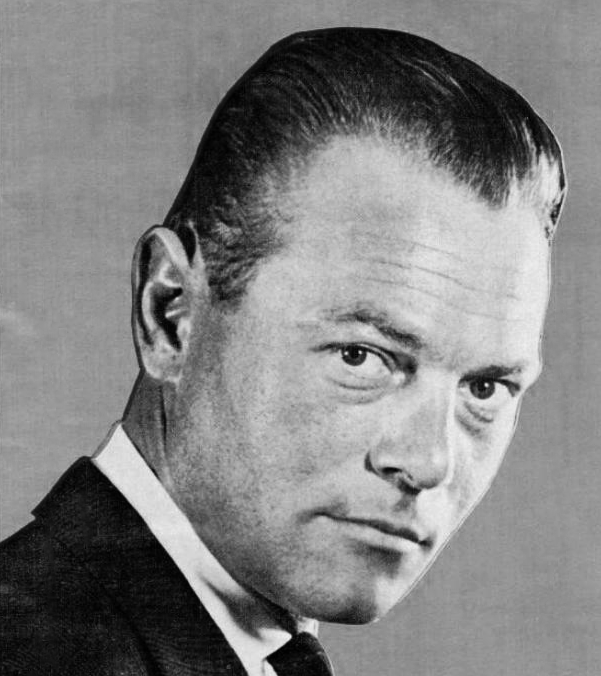Bert Kaempfert’s career at a glance
German bandleader and songwriter Bert Kaempfert was one of the most successful figures in the world of finely orchestrated pop music. Born in Hamburg, he was once a bandsman for the German Navy during the Second World War. He eventually formed his own band, and by 1960 he scored a hit with “Wonderland by Night” (and also the album of the same title).
He composed tunes (often jointly) that had become hits done by other musicians such as Frank Sinatra’s “Strangers in the Night” and “Wooden Heart” by Elvis Presley. Kaempfert also gave lush treatments to pop hits. Many artists, such as Bobby Hackett, Johnny Mathis and Anita Kerr Singers, revived Bert Kaempfert’s standard hit tunes. He also played a crucial (if indirect) role for the Beatles’ career — Kaempfert signed the then-little known band to back Tony Sheridan in recording the album My Bonnie (which Kaempfert also produced). He died suddenly of a stroke, in 1980. Many of his records were released under Decca.
Early life
The excessively-talented orchestra leader/composer/producer/arranger and multi-instrumentalist Bert Kaempfert (along with his orchestra) achieved substantial prominence and commercial success during his heyday. He also played a vital part in the Beatles’ career as well as the nascent musical phenomenon called the British Invasion in the early 1960s.
Berthold Kaempfert was born in a village in Hamburg, Germany called Barnbek, on October 16, 1923. Even when he was young, Kaempfert was aware that he was musically inclined, and knew what he would become in the future.
Although his musical tastes were diverse, Kaempfert leaned more on his favorite musical genre, the American-styled big-band music in the 1930s and 1940s. His multifaceted musical skills were finally noticed.
During World War II
During the Second World War, Kaempfert was recruited to play for an orchestra led by German armed forces Major Hans Bussch before being drafted for the German navy, where he served as a bandsman.
Bert Kaempfert and his orchestra
After the war Kaempfert formed an orchestra of his own and toured with them. His reputation grew and grew, and eventually caught the notice of Polydor Records, which hired him as its house producer, arranger and music director. While on Polydor, he brought hits for German singer/actor Freddy Quinn and Croatian singer-songwriter Ivo Robic.
Worldwide fame with “Wonderland by Night”
As with Kaempfert and his big band’s own career, they chalked up hits such as “Catalania” and “Las Vegas.” But Kaempfert wanted to take his music career higher. He recorded, arranged and produced a piece entitled “Wonderland by Night” which was written by Klaus Gunter Neumann. It was interesting that the piece couldn’t get enough exposure in his native country, so instead Kaempfert brought the track to New York, USA’s Decca Records. Decca released “Wonderland by Night” in August 1960. By November, it first appeared on the Billboard Hot 100, climbing all the way to the top of the charts. It also peaked at #5 on the Billboard’s R&B singles chart. The success of “Wonderland by Night” launched Kaempfert and his orchestra into international recognition.
Over the next few years Kaempfert and his orchestra continued to record beautifully crafted orchestrated pop gems and easy listening music. They went on to roam the charts with “Tenderly,” “Now and Forever,” “Afrikaan Beat,” “Red Roses for a Blue Lady” (his last Top 20 pop hit) and “Three O’ Clock in the Morning” (his last Top 40 hit).
Kaempfert’s small but vital role in the Beatles’ career
Kaempfert also became an unlikely part of the Beatles’ history as well as that of the nascent musical phenomenon called the British Invasion in the early 1960s. Although he wasn’t much of a fan of rock and roll, he was otherwise well aware of its growing popularity most especially among the young people.
So he signed up a singer named Tony Sheridan, a Liverpool, England singer who was in Hamburg at that time for a gig. Kaempfert needed a backing band for Sheridan, so he auditioned and recruited a then-little-known group called The Beatles, Sheridan’s fellow Liverpudlians. Sheridan and The Beatles recorded an album called My Bonnie, which Kaempfert produced. The album and its singles, including the title track, became The Beatles’ first commercially released recordings.
Meanwhile in Liverpool, a young man named Raymond Jones dropped by at a local music store owned by Brian Epstein. Jones asked him for a copy of My Bonnie by the Beatles, eventhough it was actually Sheridan’s record. Epstein didn’t have My Bonniebut he became intrigued by the Beatles. It eventually led him to his discovery of the Beatles, which of course Epstein went on to manage.
My Bonnie would prove to be a crucial catalyst towards the Beatles’ own inimitable success and legendary fame, thanks in no small part to Kaempfert.
Later career and death
As for Kaempfert, he also composed (or co-wrote) tunes including “Danke Schoen,” “Spanish Eyes (Moon Over Naples),” “Wooden Heart” and “L-O-V-E.” In the following years that musical trends were changing, Kaempfert’s brand of lush easy listening pop found less favor with the later generation of audience. He remained, though, a sought-after concert draw especially in Europe.
In 1980 Kaempfert died suddenly at his home in Mallorca, Spain, aged 56; he had previously suffered a stroke.
